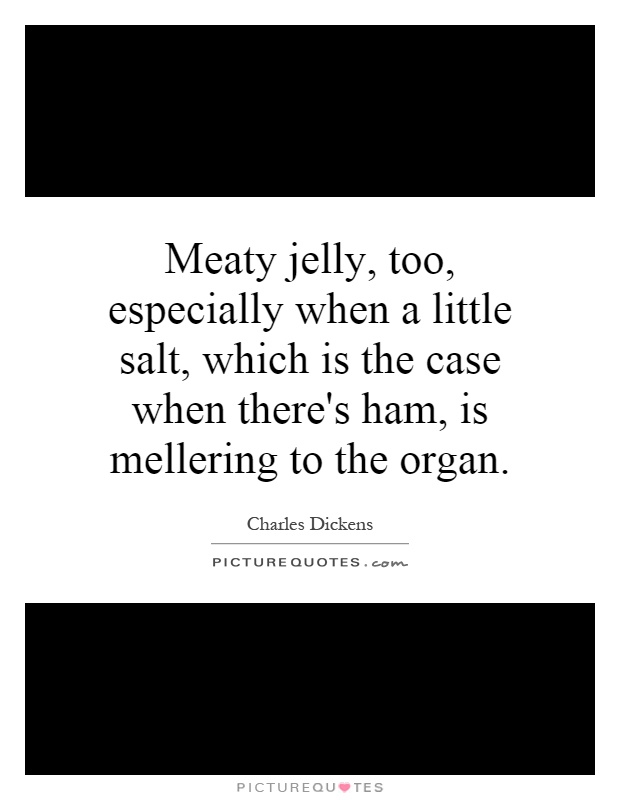Meaty jelly, too, especially when a little salt, which is the case when there's ham, is mellering to the organ

Meaty jelly, too, especially when a little salt, which is the case when there's ham, is mellering to the organ
In the context of Charles Dickens, the phrase "Meaty jelly, too, especially when a little salt, which is the case when there's ham, is mellering to the organ" could be interpreted as a reflection of the author's keen observation of human nature and society. Dickens was known for his vivid descriptions and detailed characterizations, often using food as a metaphor for deeper themes and emotions.In this particular phrase, the mention of "meaty jelly" and "ham" evokes images of hearty, comforting food that is both satisfying and nourishing. The addition of salt adds a savory element, enhancing the flavor and bringing out the richness of the meat. This could be seen as a metaphor for the complexities of life and the human experience, where moments of joy and contentment are often accompanied by a hint of bitterness or struggle.
The phrase also alludes to the idea of transformation and change, as the process of "mellering" suggests a gradual softening or blending of flavors. This could be interpreted as a metaphor for personal growth and development, as individuals navigate the challenges and obstacles that come their way. Just as meaty jelly becomes more flavorful with the addition of salt, so too do people become more resilient and adaptable through their experiences.












 Friendship Quotes
Friendship Quotes Love Quotes
Love Quotes Life Quotes
Life Quotes Funny Quotes
Funny Quotes Motivational Quotes
Motivational Quotes Inspirational Quotes
Inspirational Quotes